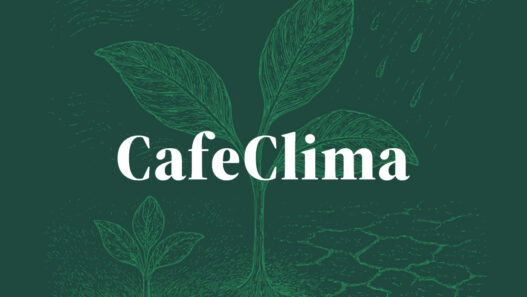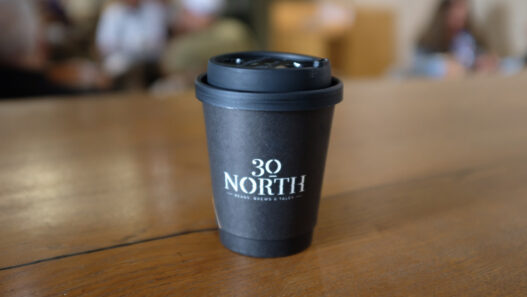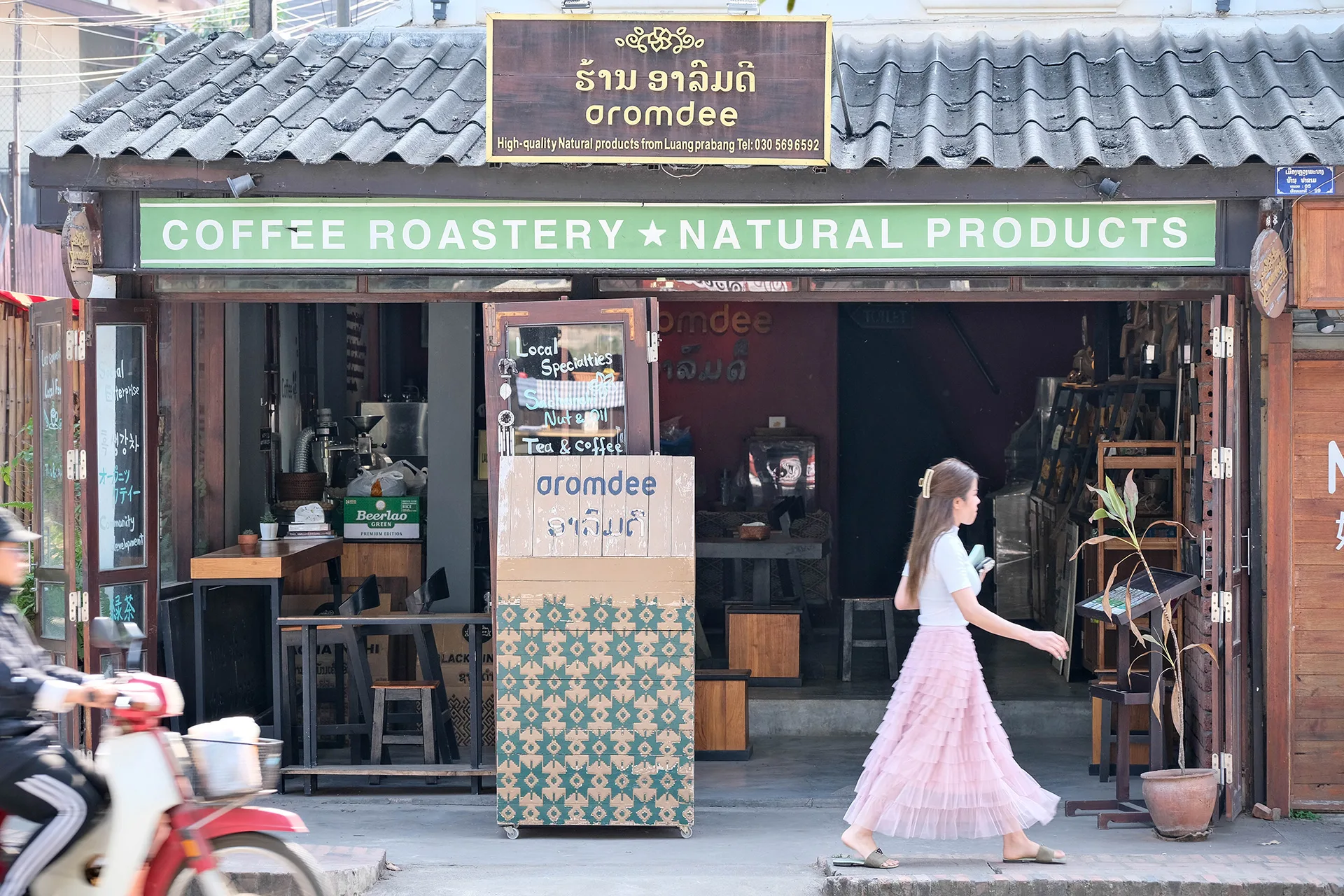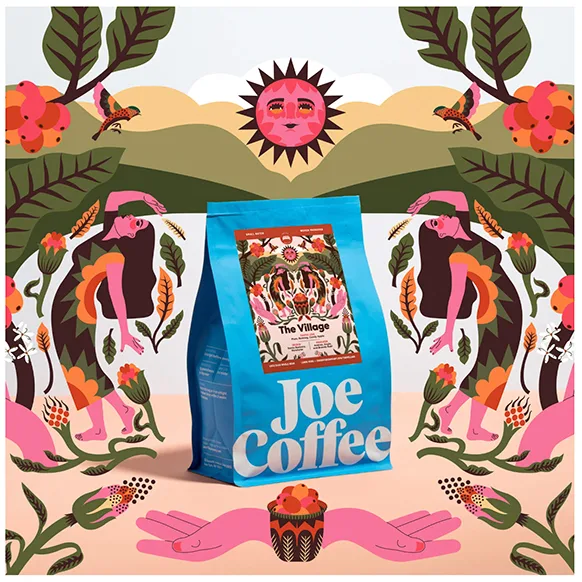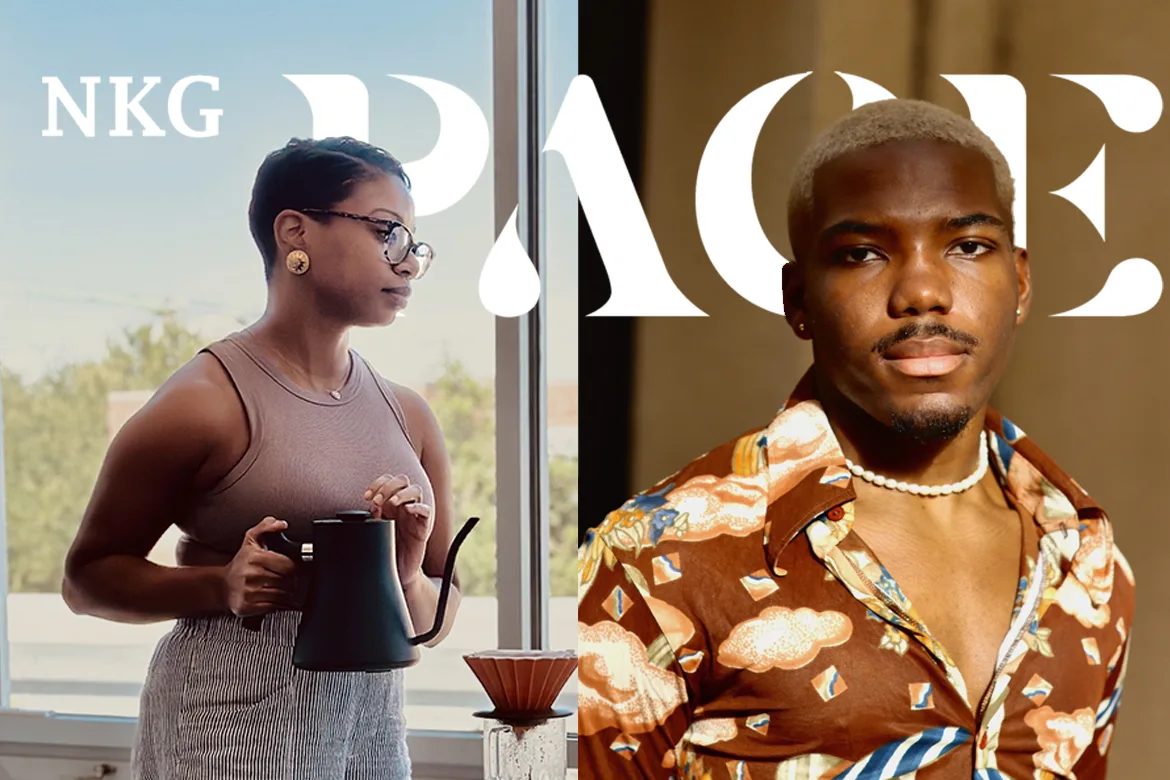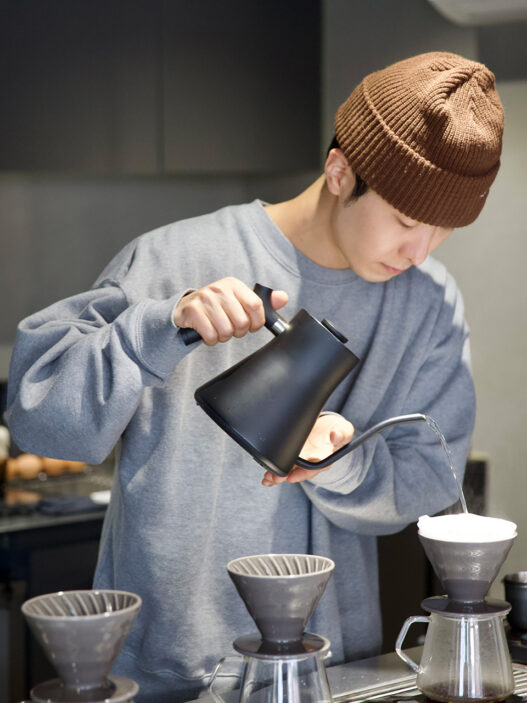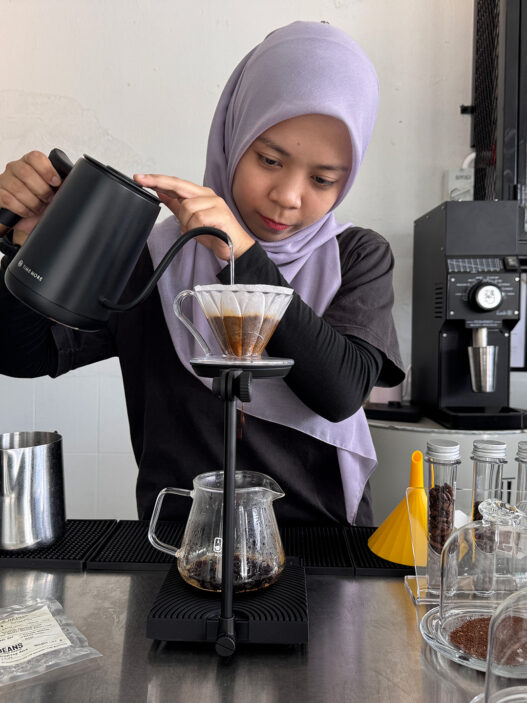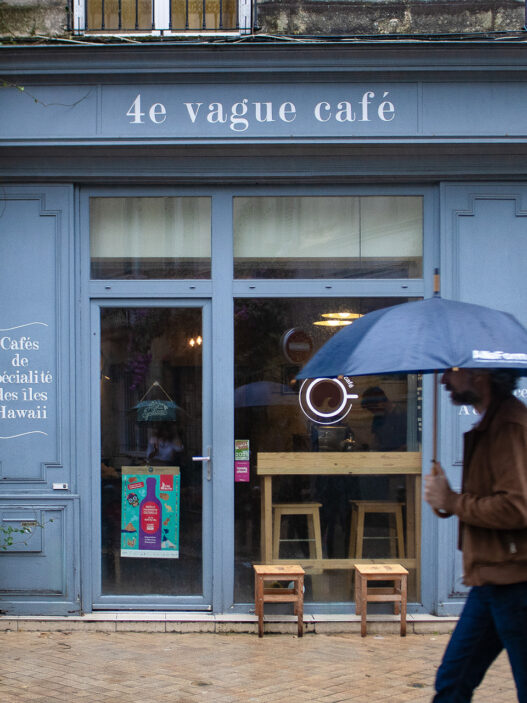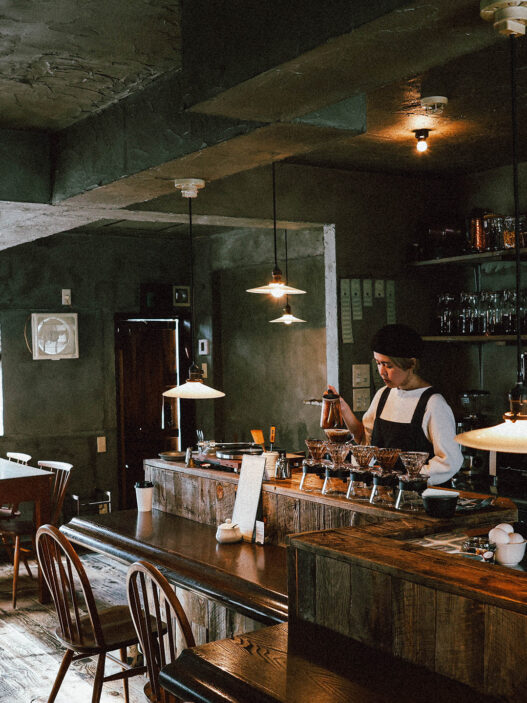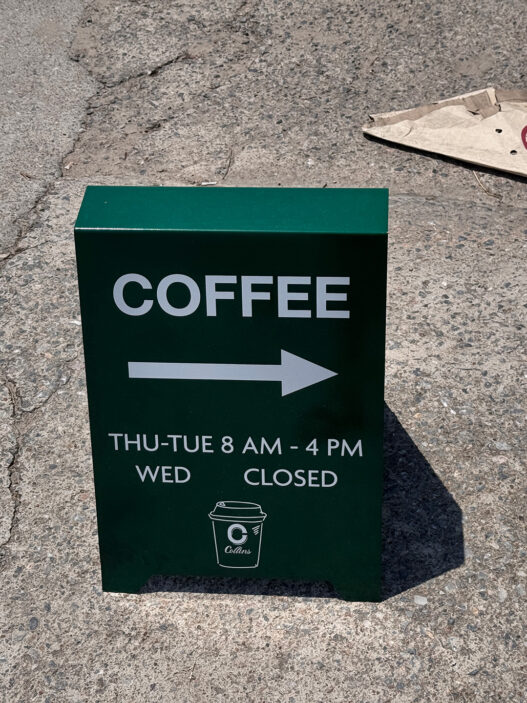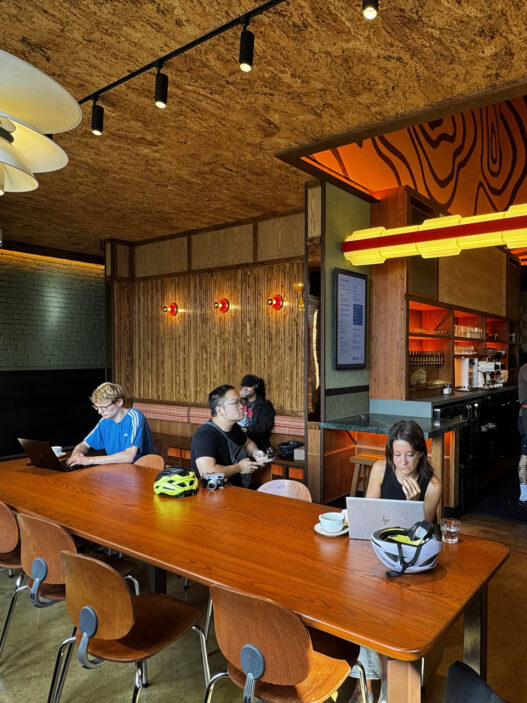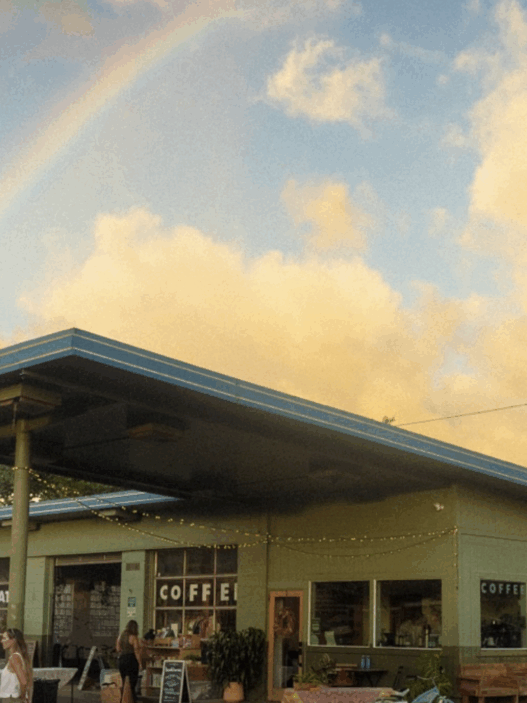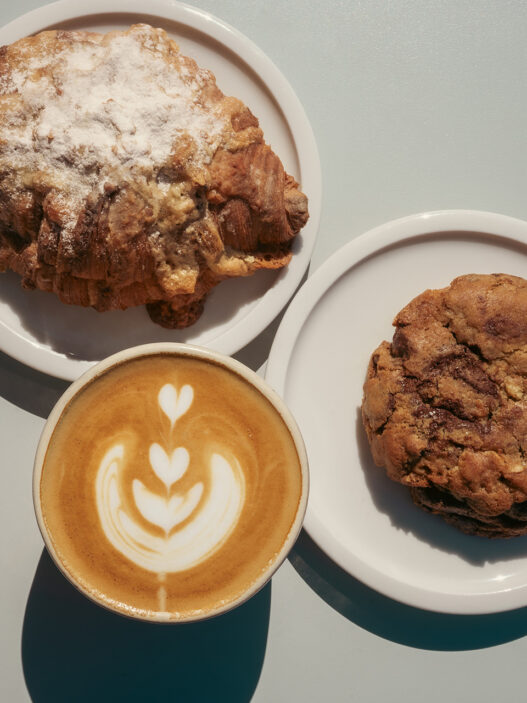Compared to its more popular neighbors like Thailand and Vietnam, Laos is a little known destination for travelers. All the same it is a remarkable destination to visit, with striking karst mountains, rivers, and waterfalls in its dense jungles. It’s also home to colorful weaving villages, and slow-moving, little towns full of local life with handicraft markets. The UNESCO Heritage Site of Luang Prabang, located in Northern Laos, is perhaps the country’s most charming city—and the most visited. The Mekong River and its tributary Nam Khan encircles the city’s historic part home to French colonial-era mansions, heritage hotels, and a central night market that takes place every day.
Among all this, you’ll also find incredible coffee.
For many years, diverse ethnic communities in remote mountains far away from towns and cities grew opium, now an illegal trade in Laos. When opium was banned, coffee was slowly introduced as an alternative cash crop. Now, it’s become so successful that former opium farmers are exporting their naturally grown coffee to other countries like France. In many regions, coffee has become a primary source of income for farmers, who have also set up cooperatives to sustain themselves.
Roaming the streets of Luang Prabang as a visitor, you’ll find a vibrant mix of contemporary homegrown coffee houses, small stalls, and street carts championing Lao-grown coffee, while supporting the livelihoods of many remote hill tribes. If this isn’t enough to convince you, know that Luang Prabang is a city that time forgot. So, here are some essential coffee places to get you started—but explore beyond, and let yourself get lost in Luang Prabang’s old-world charm and slow-paced life.
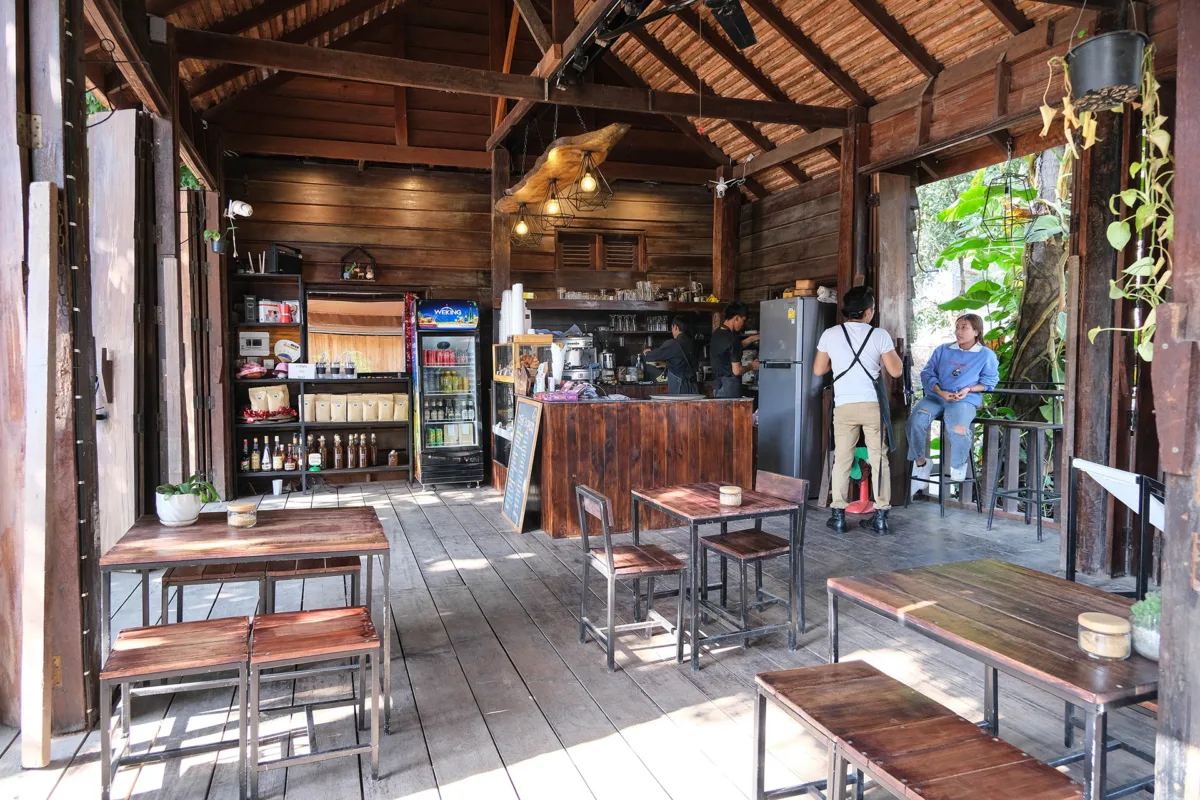
Coffee Express
At first glance, Coffee Express seems like a small, rustic wooden establishment with a few industrial-style tables sporting a quieter location a few blocks away from Luang Prabang’s bustling center. But walking in, you’ll soon discover a charming, green garden by a pond with foldable, low relaxing chairs. It’s a tranquil spot to spend a lazy afternoon with a good book, or get some work done with their fast internet—you’ll also see local artists flocking to the space to finish their sketches.
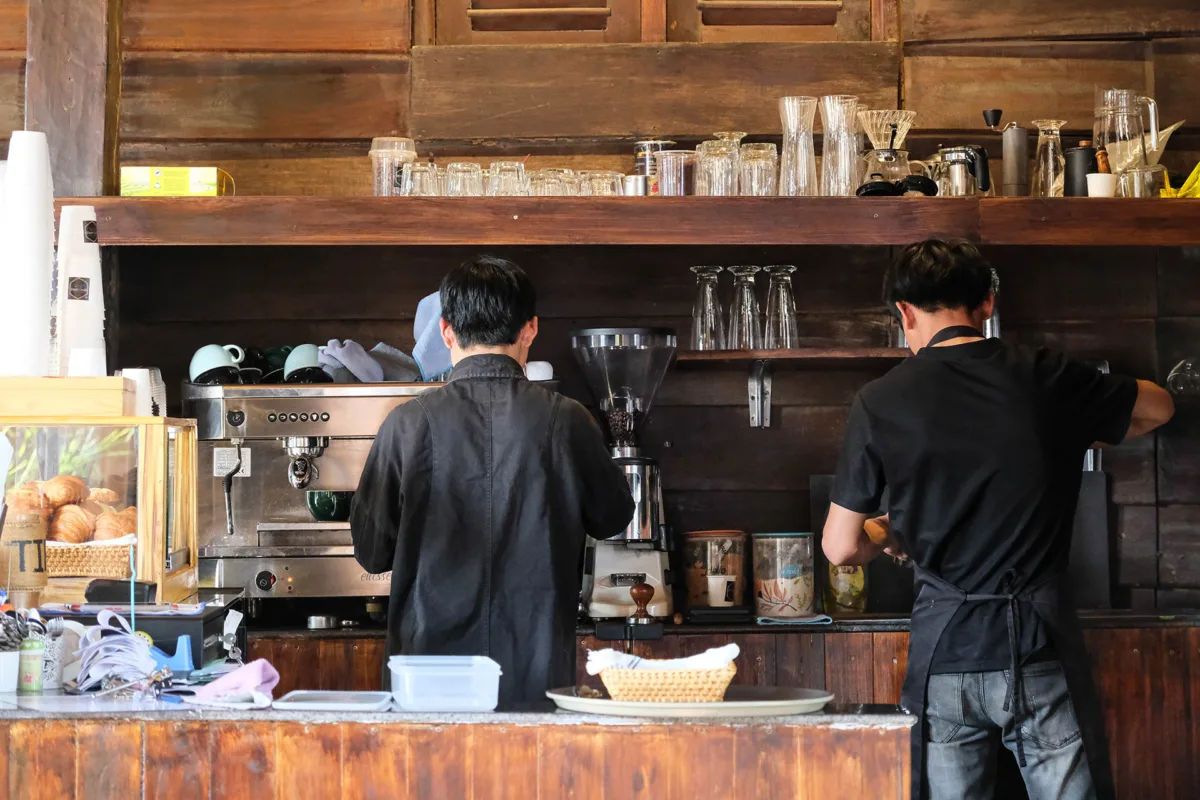
The cafe has expanded since my first visit in March last year, and for all the good reasons. For one, local owner and barista Sithi Xai is extremely passionate about coffee, and known for his impeccable latte art. Xai and his friendly, welcoming staff at the cafe proudly host some of Laos’ finest organically grown Arabica from Den Lao Coffee, sourced from farmers in Xaisomboun, a hilly province in the center of the country. Pick from the espresso-based menu, and don’t miss their freshly baked goods that include sweet almond croissants and khao jee pâté, local baguette sandwiches. You can also buy coffee bags to take home. Their iced black orange, with cold brew and orange juice, is my favorite, particularly on a sultry afternoon.
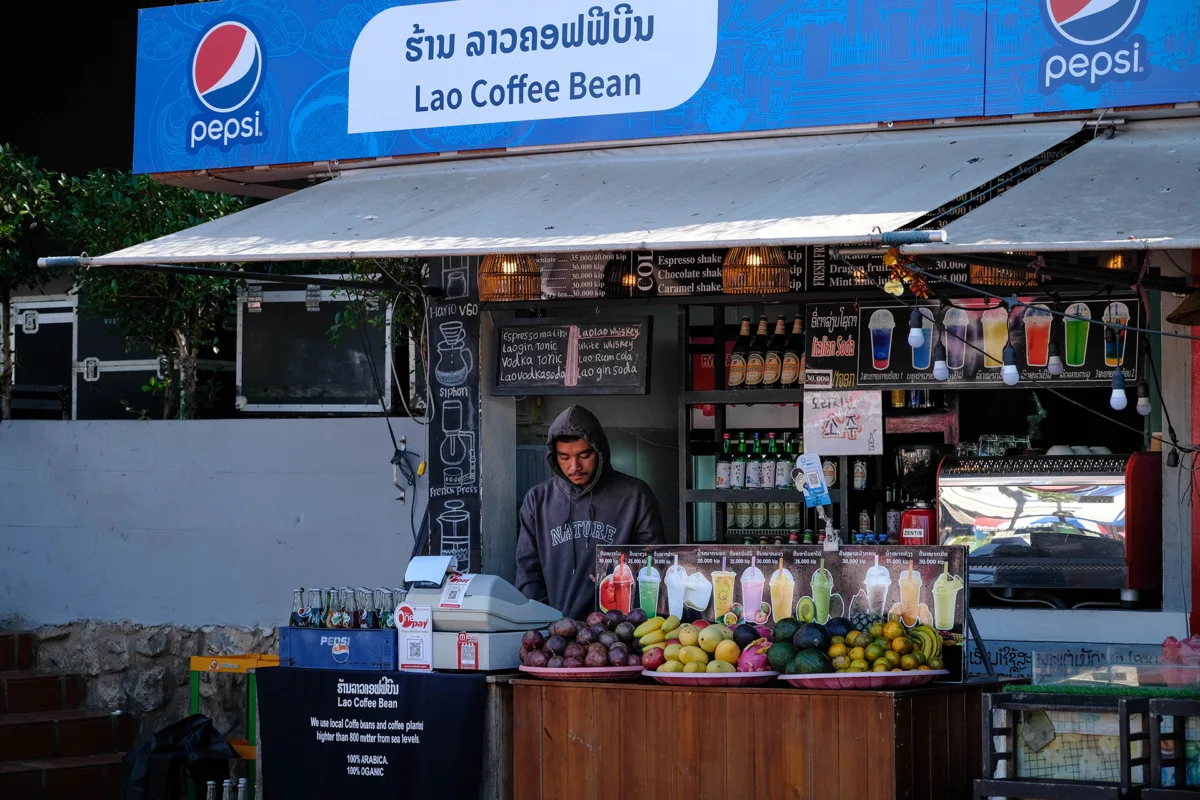
Lao Coffee Bean
One thing you’ll notice in many coffee houses across Laos is that owners and baristas have come forward to promote locally-grown coffee, and Lao Coffee Bean is no exception. This unassuming, no-frills coffee shop, quite literally, occupies a spot in the city’s famous night market—it’s exactly opposite the famous Indigo House. But go here before the sunset when every other stall is closed, and grab one of the tables at the open market space. Outside, a small signpost says it’s the “best coffee in town.” Order a cappuccino or latte shake, and you’ll quickly know it’s true.
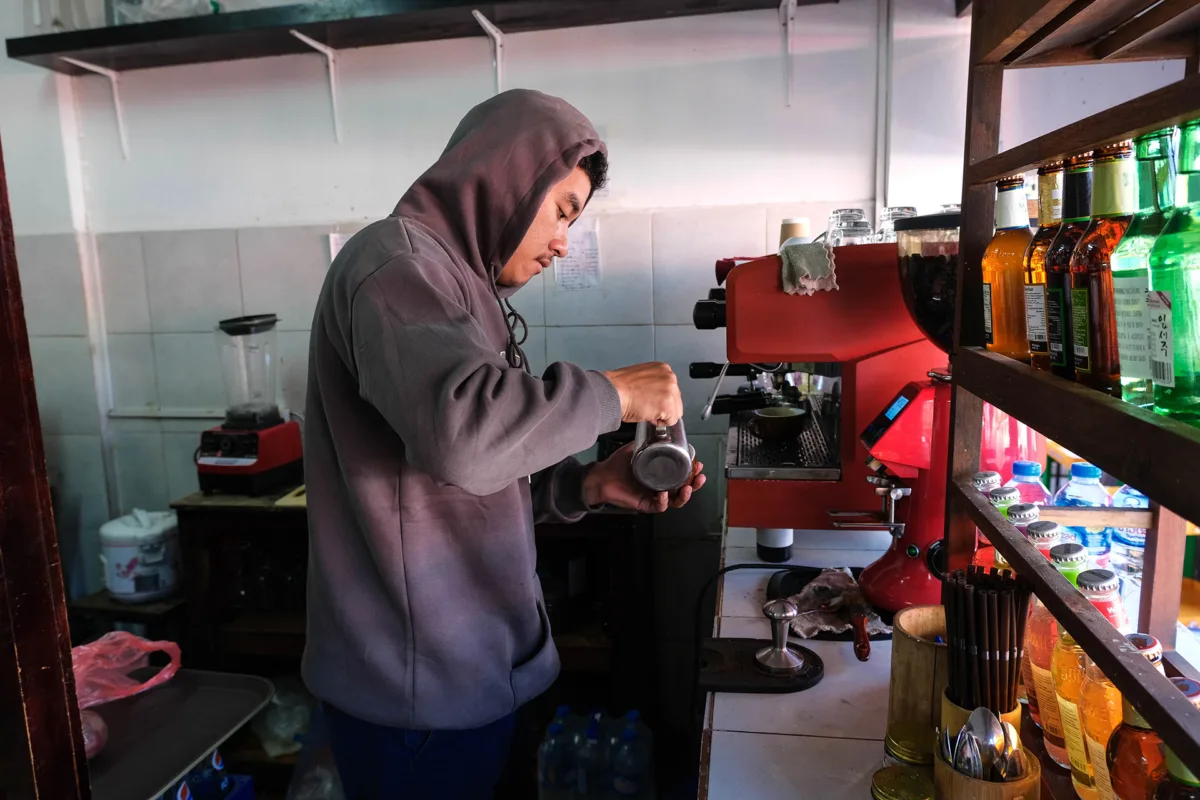
While Lao coffee is mostly grown in the Bolaven Plateau in the south of the country, Lao Coffee Bean houses organically grown Arabica sourced from the neighboring farms at an 800m elevation, a two-hour drive from Luang Prabang, promoting both sustainable farming and business practices. This results in great coffee that is delicate, lightly sweet, and fragrant. Their extensive menu also includes refreshing fruit shakes and local favorites like the Lao Latte, which is thickened with sweet condensed milk, and unique drinks like coffee cherry tea, made from the dried skin of coffee beans. Their forte, however, lies in the different brewing options they offer, from cold drip to Siphon and Hario V60.
Pro tip: Don’t shy away from chatting with the friendly owner Chanh Douangmalath, who almost exclusively manages this incredible coffee shop.
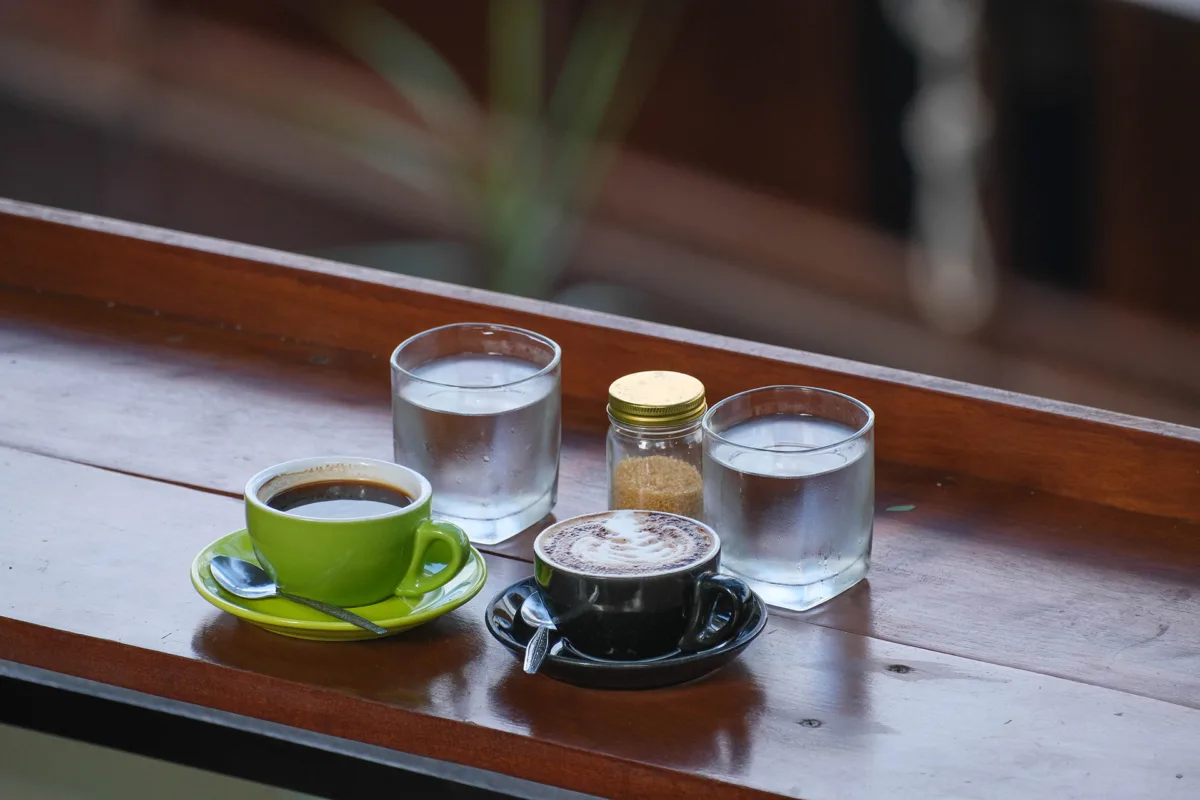
Saffron Coffee
Located on the charming Mekong riverside lined with boutiques, luxe heritage hotels, and street food stalls, Saffron is one of the pioneers in Luang Prabang’s coffee scene. Saffron began back in 2006 to support the country’s minority hill tribe farmers as they struggled to sell the coffee they produced. Grown and produced entirely in Northern Laos, this specialty coffee shop now sources its single-origin coffee, which is shade-grown, washed, graded, and hand-sorted, directly from nearly 800 tribal farmers. The brew bar and roastery are ideal for an early morning coffee fix, with terracotta tiled first-floor housing a barista counter, roaster, and a manual brew station with cozy nooks, while upstairs has more seating and a local feel with wood paneling.
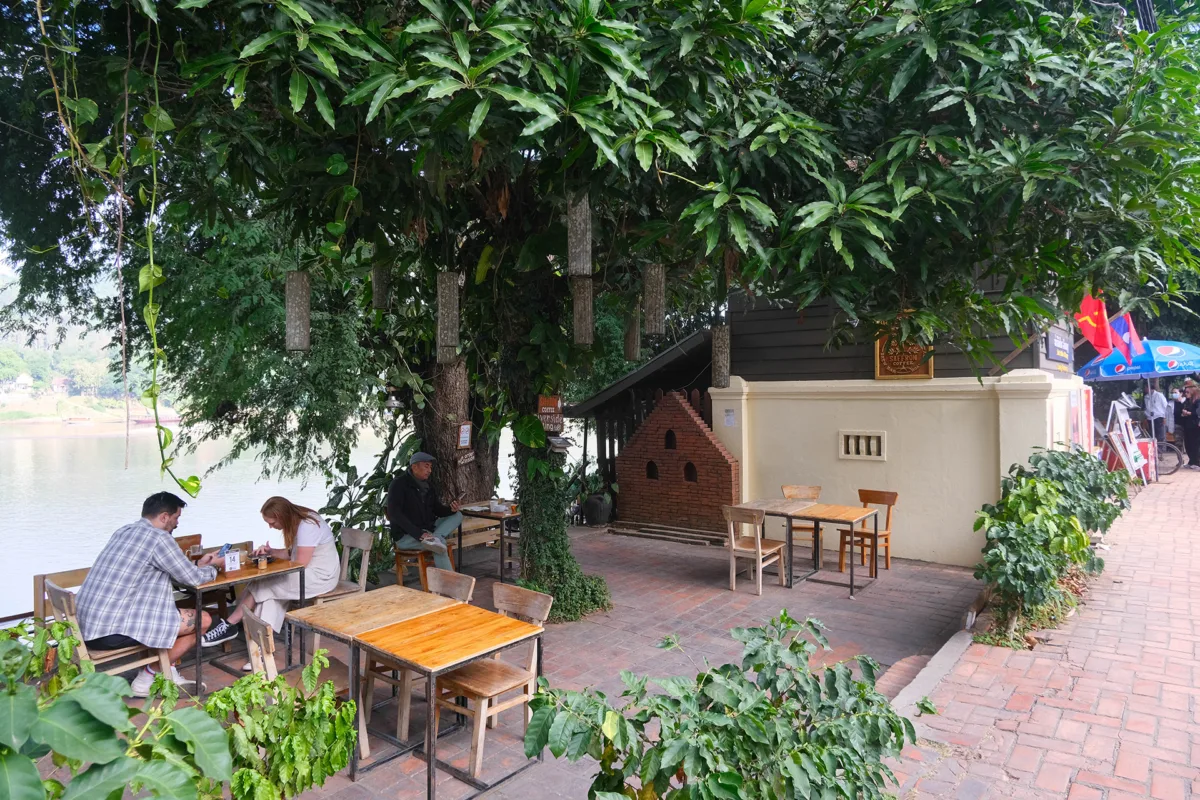
Sit outside for views of the Mekong, and order from the coffee menu that leans towards darker roasts, and Saffron’s fine selection of homemade cakes. Shelves are stocked with take-home coffee bean bags and locally-made coffee-based products like soap and jam. Other specials include cascara (coffee cherry tea) kombucha and iced cascara tea mixed with ginger. If you are looking for something unique to do in Luang Prabang, I highly recommend joining one of their tours which includes a trip to their coffee plots, processing plant, and sampling sessions.
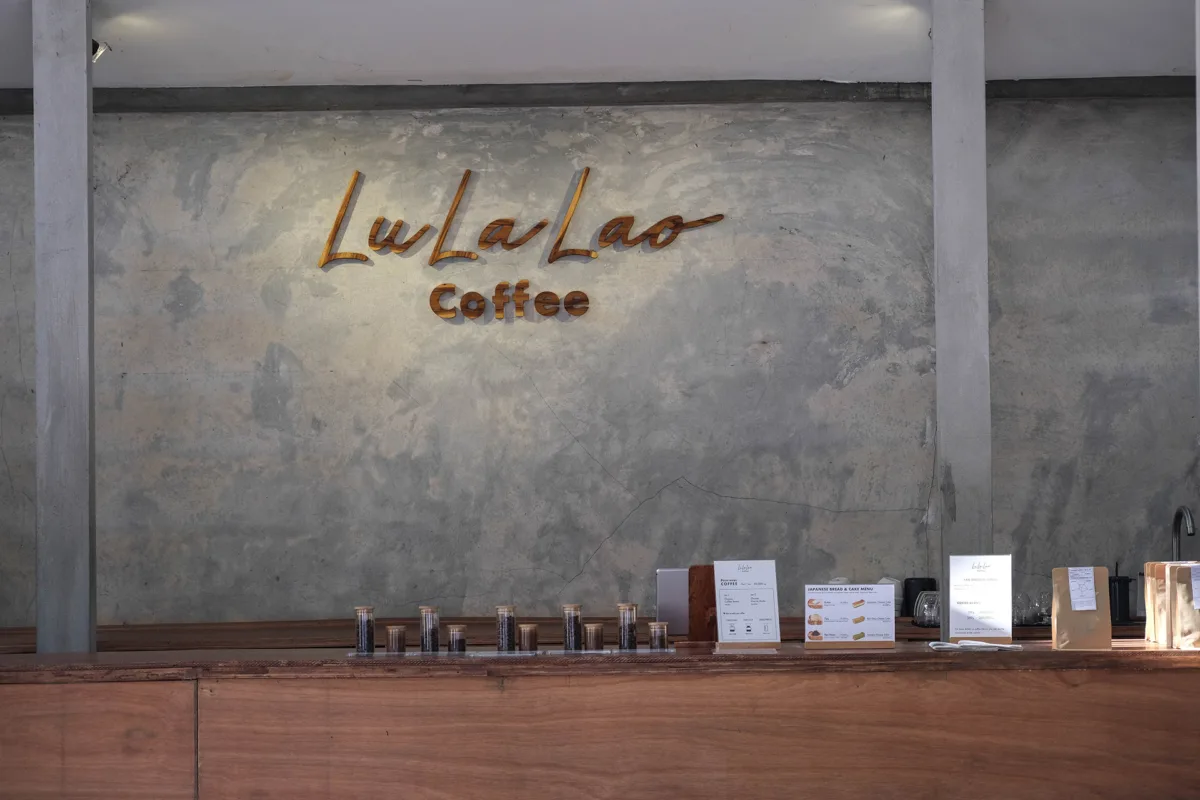
LuLaLao Coffee
To find LuLaLao Coffee, you’ll have to walk to the end of Luang Prabang’s old city past glittering Buddhist temples and pink bougainvillea-lined fine dining restaurants, but it’s worth it for many reasons. The open-air cafe is one of the recent additions to the town’s coffee scene, but it’s already a crowd favorite for its minimal-chic, clean, and sleek aesthetics with cement and honeyed wood tones, and of course, the coffee.
LuLaLao houses an onsite roastery, and offers a complete farm-to-table experience, with beans sourced from the Southern and Central regions. Order from their pour-over, espresso-based, or cold brew menus to pair with the cafe’s earl grey cheesecakes. Every drink here comes with a little card full of notes that coffee enthusiasts would quite fancy. And the staff, wearing their distinctive black t-shirt uniforms, are always ready to help with recommendations.
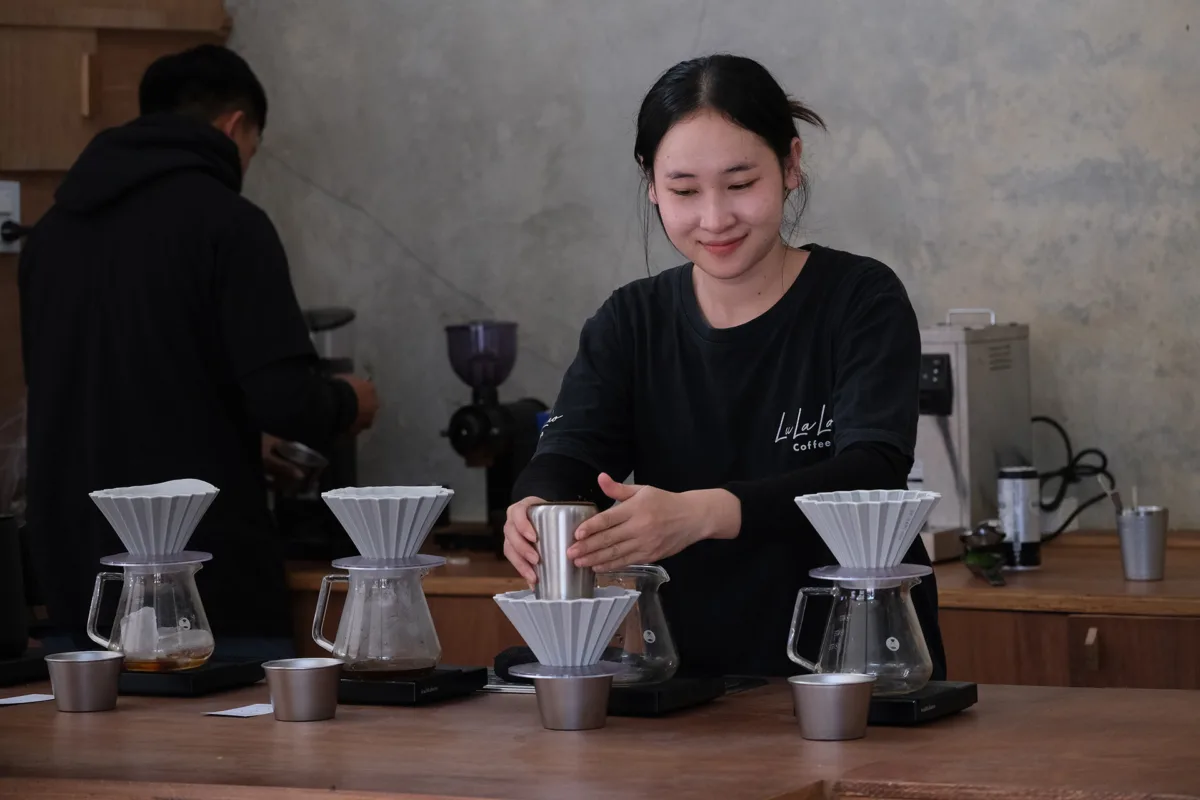
The barista counter also offers a crash course to Lao coffee, with details on variety, processing, tasting notes, and acidity of each single-origin on display. You can also grab a booklet that includes more information on Lao coffee traditions and farming. Keep in mind that LuLaLao is often crowded, especially during the town’s tourist season which runs from December to February, but it’s just a really special place, so don’t miss it.
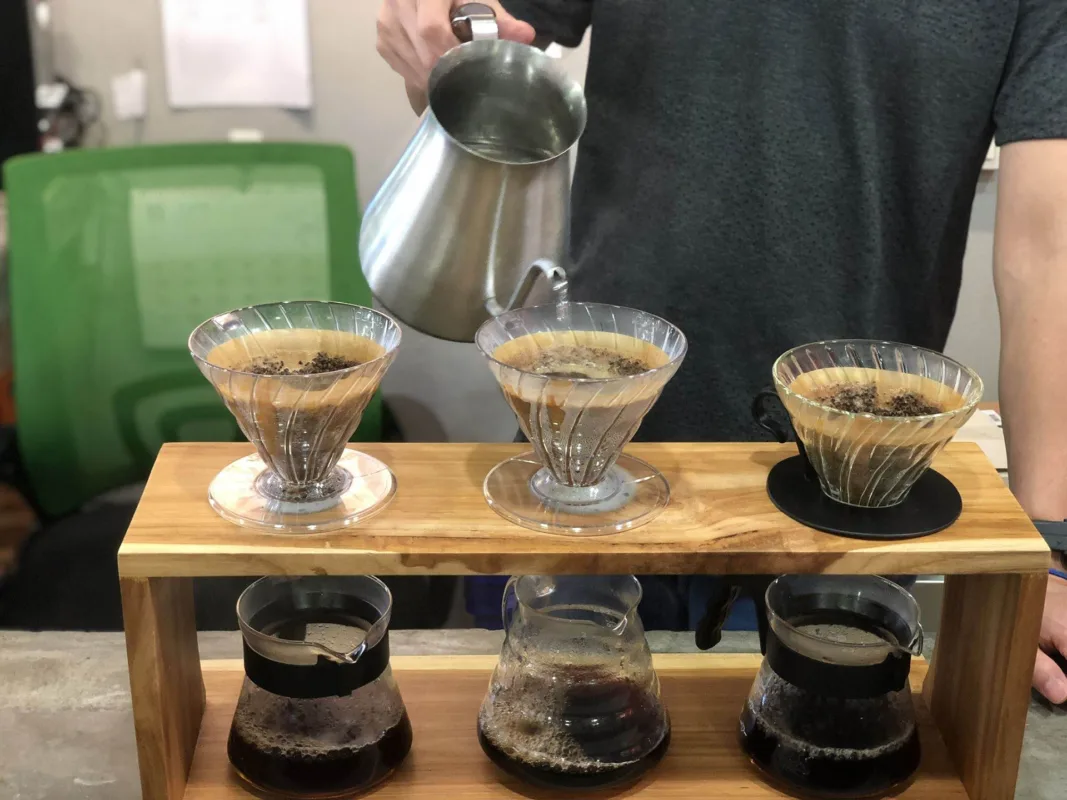
Aromdee
You can almost call Armodee—meaning “delightful”—an all-rounder. It’s also true to its name for a handful of reasons. This Mekong waterfront business is a social enterprise that sells coffee beans, herbal tea, nuts, herbs, and natural oils that support community development projects, but it’s also a roastery and a little coffee shop with character set in a traditional wooden building. Aromdee supports fair-trade practices and has partnered up with the farmers of Keoset Community Coffee, a specialty coffee grown in the hilly forests of Northern Laos.
The cement-floored coffee house is bright, neat, and well-kept; it’s spacious and airy with a bright red wall in the back that displays “aromdee” in both English and Lao. As part of the shop, several wooden shelves and cabinets display coffee beans in tightly sealed paper bags along with other, locally-sourced products.
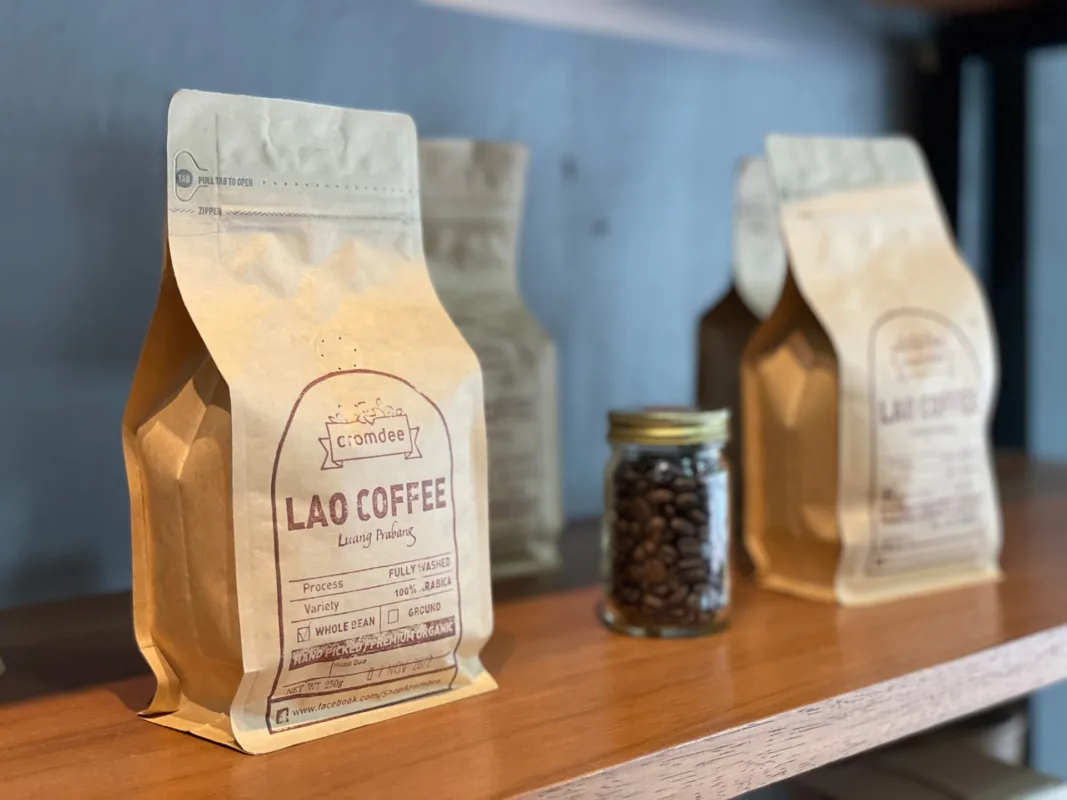
The staff and barista are always present with a smile, and eager to show you the small batch roasting process while telling you more about their sustainable coffee practices. Their menu is limited, but drop by for hand drip coffee and cold brews with great fruity notes. If you are looking for meaningful souvenirs before heading home, it’s also a great place to grab some drip coffee bags.
Zinara Rathnayake is a freelance journalist based in Colombo, Sri Lanka. Read more Zinara Rathnayake on Sprudge.




